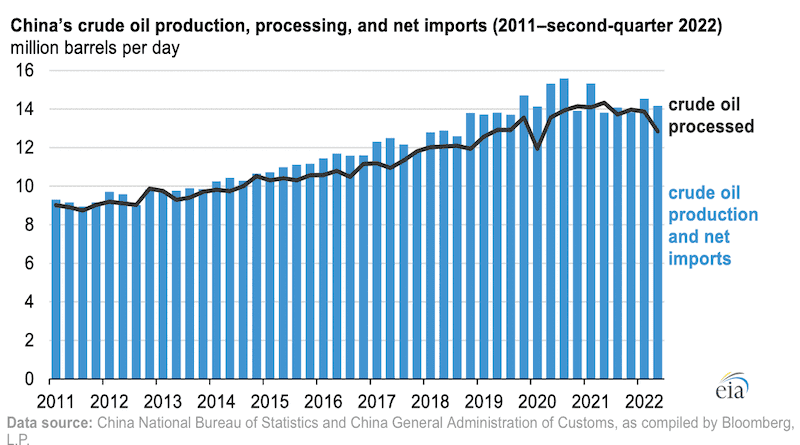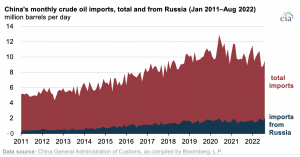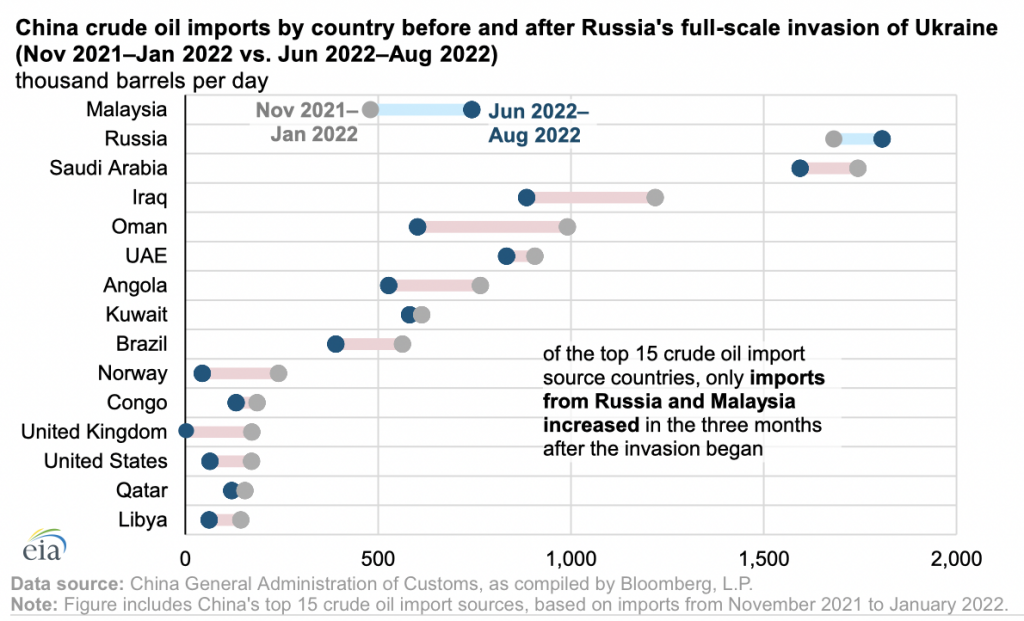China Processed Least Crude Oil Since Early 2020 In Second-Quarter 2022 – Analysis
By EIA
In the second quarter of 2022, China processed the least crude oil since the first quarter of 2020, when the COVID-19 pandemic had the strongest effect on China’s economic activity. The resurgence of COVID-19 cases since March 2022 and China’s policy of localized mobility restrictions explain China’s reduced demand for petroleum products, and as a result, reduced refinery activity, in the second quarter of 2022.
In addition to decreased domestic demand, lower export quotas for finished petroleum products, beginning around the second half of 2021, have contributed to reduced demand for crude oil processing in China. Because China has been processing less crude oil, it has also been importing less crude oil for processing. China’s crude oil imports peaked in late 2020 and early 2021 before decreasing as a result of lower domestic demand and higher global crude oil prices.
China’s crude oil imports were particularly low in June and July 2022. In June, China’s crude oil imports decreased to 8.8 million barrels per day (b/d), the least since July 2018. Imports remained at 8.8 million b/d in July, down 2.0 million b/d from May of this year, but increased to 9.5 million b/d in August.
Despite China’s total crude oil imports decreasing in recent months, China’s crude oil imports from Russia have increased from 8% (slightly less than 400,000 b/d) of total crude oil imports in 2011 to about 16% (1.6 million b/d) in 2021, and to as much as 21% (2.0 million b/d) in August 2022. Russia’s share of China’s crude oil imports was 20% in June and 19% in July.
Western economic sanctions have reduced consumption of Russia’s crude oil in many countries. Europe, for example, has been looking for alternative sources, driving up prices for Brent crude oil and leaving crude oil prices in Russia at a discount. Likely in response to these dynamics, China has shifted its imports away from more expensive western sources to imports from Russia.
Principal contributor: Jimmy Troderman



